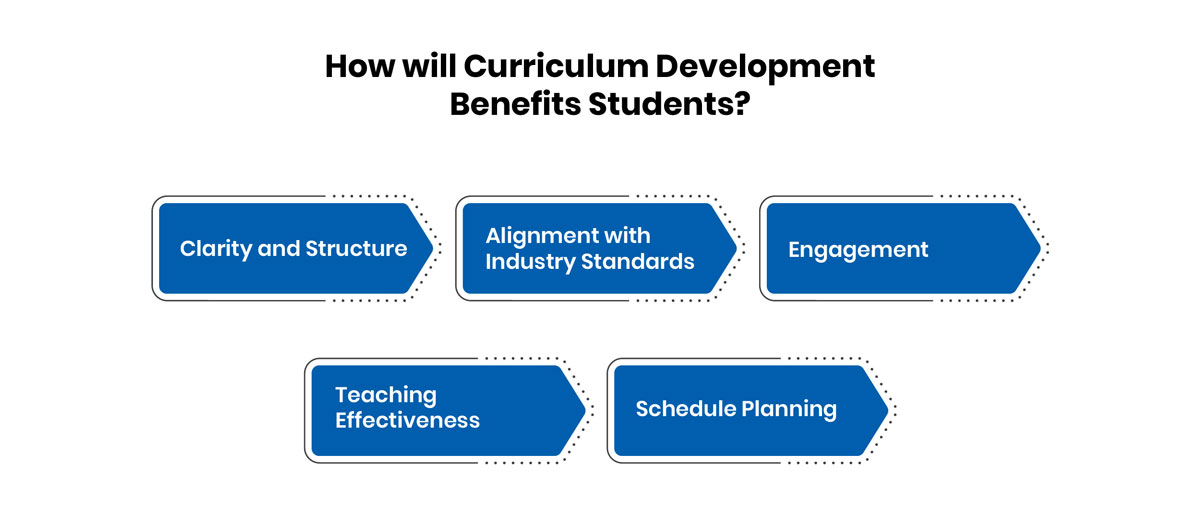Why Curriculum Needs to Change? An Overview
March 04, 2024Today, the education system is standing against unprecedented uncertainty, unlike anything in its recent history. Rapidly evolving technology is rendering the skills acquired in schools, making us outdated within a matter of years. This raises a critical question: Does our curriculum require a revision? The short answer is yes, but the long answer deals with why the need to change the learning pattern has arrived. Continue reading for a comprehensive explanation of why the curriculum needs to change.
Why Is It Important to Update Our Present Curriculum?
Education is evolving; driven by factors such as rapid technological development, globalization of cultures, shifts in the work environment, and other influences, highlighting the importance of curriculum adaptation.
Dated curriculum is irrelevant today, particularly in fields like history, science, and technology, where continuous evolution is evident. This makes educators face a persistent concern:
- How to prepare students for future jobs and challenges?
- How can students compete in yet-to-emerge industries and business models?
The demand for knowledge in education continually evolves due to our dynamic world. A global perspective, shaped by diverse cultures and media platforms, influences how we learn.
The current education is facing—
- Environmental challenges: Disease outbreaks, war, political tensions, and resource competition tightening the current educational environment.
- Shifting demand for skills: There's a growing preference for graduate degrees in higher education, altering the focus of educational programs.
- Changing youth aspirations: Today's youth actively seek diversity, freedom of movement, and tolerance, challenging traditional educational paradigms.
- Global collaboration: There's a growing recognition of the necessity for cross-country and cultural collaboration to tackle global challenges like food security, water safety, climate management, and digital privacy.
What must be done is to prepare the youngsters for tomorrow's challenges. Education at all levels needs to be critically reviewed in light of present cultural needs, global pressures, and technological innovations. The ultimate aim is to provide students with a comprehensive learning experience that meets their needs and equips them for future endeavors.
Why Does the Demand for Knowledge Evolve?
We need to understand that:
- We live in a globalized society.
- Our world is undergoing rapid and continuous change.
- There's an explosion of information in our culture.
- Present educational curricula prioritize information over processes.
- In-school education lacks relevance compared to out-of-school education.
- A significant time lag exists in incorporating new techniques into educational practices.
Today's interconnected world facilitates global connectivity and information processing, compelling educational content to reflect this reality by leveraging engaging technological tools and staying abreast of global trends.
How will Curriculum Development Benefits Students?
An updated curriculum will help students and learners acquire not just information; but how information is sourced, identified, and utilized. A well-developed curriculum plays a crucial role in supporting students' learning experiences in various ways.

- Clarity and Structure: Students gain a clear understanding of their course content and schedule, enabling them to navigate their educational journey effectively.
- Alignment with Industry Standards: When the curriculum aligns with educational goals and industry standards, it ensures students acquire relevant knowledge and skills valued in their chosen fields.
- Engagement: Interactive learning features foster student engagement by offering dynamic and immersive learning experiences that cater to diverse learning styles.
- Teaching Effectiveness: A structured curriculum enhances teaching effectiveness by providing educators with a framework to deliver content effectively and assess student progress.
- Schedule Planning: Students can effectively plan their schedules with a well-defined curriculum, balancing academic requirements with other commitments.
The Solution
Managing curriculum change involves a logical five-step process:
- Analyzing current offerings and context.
- Expressing key program aims in a mission statement.
- Prioritizing resources and development strategies.
- Implementing targeted curricula changes.
- Establishing monitoring tools and processes for ongoing evaluation.
To elevate education, a strategic focus on accessibility, lifelong learning, and skill development is imperative. This involves:
- Democratization through Technology: Embracing educational technology to democratize education by making it more affordable, flexible, and accessible. Utilizing online platforms and resources can enable individuals to pursue education regardless of their location or schedule constraints, bridging the gap for those without access to top-tier institutions or scholars.
- Individualized Learning: Shifting towards a model of personalized education by expanding the recognition of credentials beyond traditional four-year degrees. Embracing sub-degrees, certificates, and digital badges allows individuals to tailor their learning experience to their specific needs and career goals. This approach acknowledges that not everyone requires a full degree and promotes lifelong learning by offering relevant and targeted educational opportunities.
- Accessibility Enhancement: Removing barriers to education through intentional design and flexibility. Addressing issues such as cost, time constraints due to work or family commitments, and geographic limitations can make education more accessible to a wider range of individuals. Providing flexible scheduling options and accommodating diverse learning needs can facilitate greater participation and engagement in higher education.
In practical terms, educators should focus on global integration, adapting to the digital age, incorporating technological education, and evolving with changing worldviews. This involves adjusting the curriculum to encompass diverse perspectives, creating engaging content amidst technological distractions, integrating educational technology, and adapting to evolving societal, technological, and cultural shifts. These proactive measures prepare students for a dynamic world, cultivating resilience and adaptability beyond the classroom.
End Note
The curriculum development plays a crucial role in enhancing students' learning experiences. It achieves this by providing clarity, aligning with industry standards, promoting engagement, supporting teaching effectiveness, facilitating effective schedule planning, and guiding the learning pace to ensure meaningful progress.




